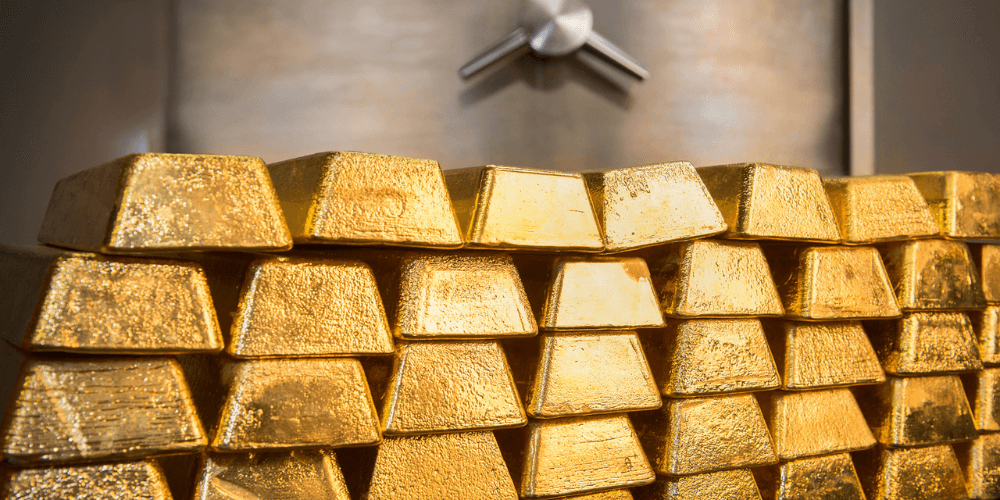China’s Property Bubble Risks: Is Now a Good Time to Add to the Gold Hedge?
The contents of this article, accurate at the time of publishing, is for general information purposes only, and does not constitute investment, pensions, legal, tax, or any other advice. Before making any investment or financial decision, you may wish to seek advice from your financial, pensions, legal, tax and/or accounting advisors.

According to the article, China's meteoric economic rise over the past few decades has been fuelled by rapid urbanization, massive infrastructure projects, and a booming real estate sector. However, this growth trajectory has led to significant concerns regarding the formation of property bubbles, epitomized by the recent turmoil surrounding Evergrande, one of China's largest real estate developers. As the world closely watches the developments in China's property market, there are growing fears that the bursting of these bubbles could reverberate far beyond China's borders, potentially triggering a global financial contagion. This scenario has seen some investors turn to perceived safe-haven assets like gold, highlighting the complex interplay between China's property market risks, its economy and demand for gold.
The Evergrande Crisis: A Glimpse into China's Property Bubble Risks
As mentioned in the BBC report, Evergrande, that was once a symbol of China's economic prowess, now stands as a stark reminder of the perils associated with rapid property market expansion. With a debt load exceeding $300 billion, the company's financial woes have sparked fears of a potential default that could cascade through the Chinese financial system, affecting creditors, homebuyers, and even the broader economy. Evergrande's struggles have underscored the immense scale of China's property bubble, where debt-fuelled growth has led to an oversupply of housing units, soaring property prices, and a growing debt burden that threatens to destabilize the entire sector.
Contagion and the Global Impact
The interconnectedness of the global financial system means that shocks in one corner of the world can quickly reverberate across borders. The potential collapse of a major player like Evergrande could trigger a domino effect, spreading panic through financial markets. The first channel of contagion would be through global financial institutions exposed to Evergrande's debt. As these institutions face losses, they could tighten lending, reducing access to credit not only in China but also globally. The Chinese economy appears to be beginning to feel these effects, as its Central Bank was forced to reduce short term interest rates earlier this week, in response to its economy falling into deflation and Evergrande filing for bankruptcy in the US.
Furthermore, the reported slowdown in China's property sector could have profound implications for global commodities markets. China has been a key driver of demand for raw materials such as steel, cement, and copper due to its massive construction and infrastructure projects. A contraction in its property market could lead to decreased demand for these materials, impacting commodity-exporting countries around the world.

Caption: Gold could be a safe haven for some investors
Gold as a Safe-Haven Asset in Times of Uncertainty
In times of economic uncertainty and market turmoil, investors often seek refuge in safe-haven assets. Gold, historically regarded as a store of value, has consistently fulfilled this role. The potential fallout from a Chinese property market collapse could drive investors to seek safety in gold as a hedge against currency depreciation, market volatility, and financial instability.
Gold's appeal during such crises is underscored by its limited correlation with other financial assets. Unlike stocks or bonds, gold's value is not directly tied to the performance of a specific company or government. This characteristic can make it an attractive asset for diversification, to potentially contribute towards reducing the overall risk exposure of investment portfolios.
Conclusion
The risks posed by China's property bubble, as exemplified by the Evergrande situation, cannot be underestimated. The interconnectedness of the global financial system means that a localised problem can quickly escalate into a global crisis, with far-reaching economic consequences. As investors grapple with the uncertainty surrounding China's property market, their demand for perceived safe-haven assets like gold is likely to rise, in line with the Chinese central bank’s accumulation of gold reserves.
This article may include references to third-party sources. We do not endorse or guarantee the accuracy of information from external sources, and readers should verify all information independently and use external sources at their own discretion. We are not responsible for any content or consequences arising from such third-party sources.
References:
World Gold Council: Gold performance Vs. other asset classes YTD | The Royal Mint





